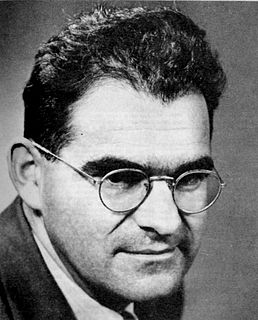Top 1200 Compassion For Others Quotes & Sayings - Page 2
Explore popular Compassion For Others quotes.
Last updated on April 19, 2025.
What is called generosity is really compassion. In the Shin'ei it is written "Seen from the eye of compassion, there is noone to be disliked. One who has sinned is to be pitied all the more." There is no limit to the breadth and depth of ones heart. There is room enough for all. That we still worship the sages of the three ancient kingdoms is because their compassion reaches us yet today.
Witness the American ideal: the Self-Made Man. But there is no such person. If we can stand on our own two feet, it is because others have raised us up. If, as adults, we can lay claim to competence and compassion, it only means that other human beings have been willing and enabled to commit their competence and compassion to us--through infancy, childhood, and adolescence, right up to this very moment.
Compassion asks us to go where it hurts, to enter into the places of pain, to share in brokenness, fear, confusion, and anguish. Compassion challenges us to cry out with those in misery, to mourn with those who are lonely, to weep with those in tears. Compassion requires us to be weak with the weak, vulnerable with the vulnerable, and powerless with the powerless. Compassion means full immersion in the condition of being human.
A Winner's Blueprint for Achievement BELIEVE while others are doubting. PLAN while others are playing. STUDY while others are sleeping. DECIDE while others are delaying. PREPARE while others are daydreaming. BEGIN while others are procrastinating. WORK while others are wishing. SAVE while others are wasting. LISTEN while others are talking. SMILE while others are frowning. COMMEND while others are criticizing. PERSIST while others are quitting.
As long as we observe love for others and respect for their rights and dignity in our daily lives, then whether we are learned or unlearned, whether we believe in the Buddha or God, follow some religion or none at all, as long as we have compassion for others and conduct ourselves with restraint out of a sense of responsibility, there is no doubt we will be happy.
The human being is that space in which the comprehensive compassion that pervades the universe from the very beginning now begins to surface --within consciousness. (As compared with the natural displays of compassion by other creatures that is not necessarily 'within consciousness. ') That's the only difference. We didn't create compassion, but it's flowing through us-or it could. The phase change that we're in seems, to me, to depend upon that comprehensive compassion unfurling in the human species.
Compassion and mercy are important, period. It doesn't matter who's at our receiving end, but we need to be flexing those muscles. It's not mutually exclusive: If you have compassion for children starving in Africa, it doesn't mean you can't have compassion for adults in Africa or animals that are being tortured and abused.
The amount of love, kindness, patience I have for others is is directly proportional to how much love I have for myself, because we cannot give others what we ourselves do not have. And, unsurprisingly, the amount of love, respect, support, and compassion I receive from others is also in direct proportion to how much I love myself.
True compassion is not just an emotional response, but a firm commitment founded on reason. Therefore, a truly compassionate attitude toward others does not change, even if they behave negatively. Through universal altruism, you develop a feeling of responsibility for others: the wish to help them actively overcome their problems.
We are all, by nature, clearly oriented toward the basic human values of love and compassion. We all prefer the love of others to their hatred. We all prefer others’ generosity to meanness. And who is there among us who does not prefer tolerance, respect and forgiveness of our failings to bigotry, disrespect, and resentment?
People like Jesus Christ, the Buddha, and other walking masters who have moved through the earth have demonstrated that understanding that they have no needs, far from prohibiting them from experiencing the needs of others, allowed them to experience that others lived inside of the illusion of need and to have great compassion for them.
Character is revealed in the power to discern the suffering of other people when we ourselves are suffering; in the ability to detect the hunger of others when we are hungry; and in the power to reach out and extend compassion for the spiritual agony of others when we are in the midst of our own spiritual distress.
I have found that the greatest degree of inner tranquility comes from the development of love and compassion. The more we care for the happiness of others, the greater is our own sense of well-being. Cultivating a close, warmhearted feeling for others automatically puts the mind at ease. It is the ultimate source of success in life.
In our concern for others, we worry less about ourselves. When we worry less about ourselves an experience of our own suffering is less intense. What does this tell us? Firstly, because our every action has a universal dimension, a potential impact on others' happiness, ethics are necessary as a means to ensure that we do not harm others. Secondly, it tells us that genuine happiness consists in those spiritual qualities of love, compassion, patience, tolerance and forgiveness and so on. For it is these which provide both for our happiness and others' happiness.


















































